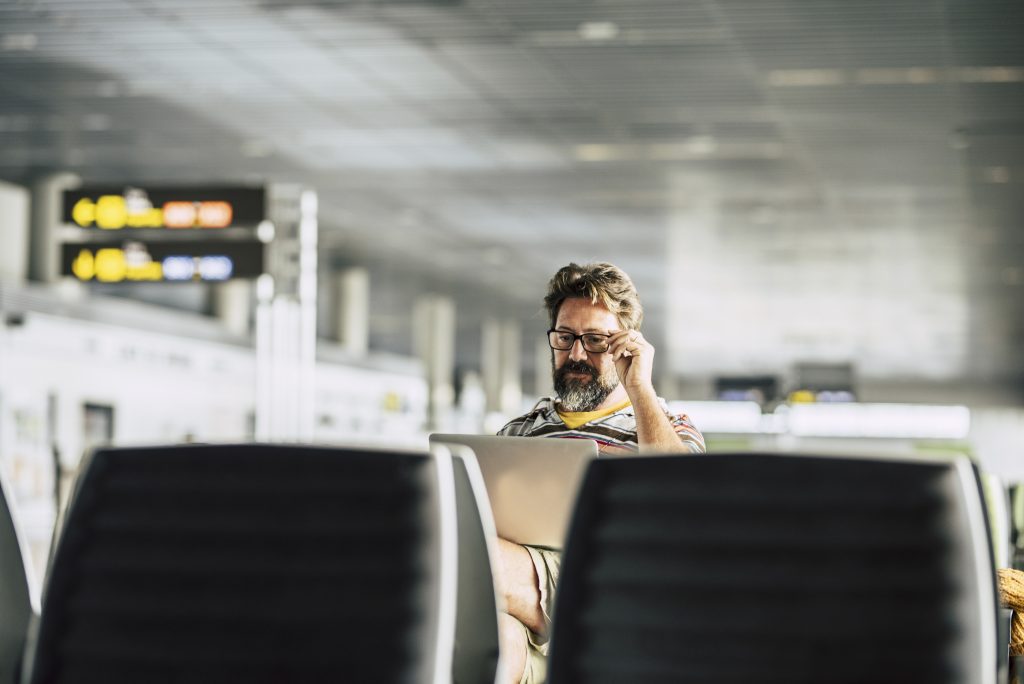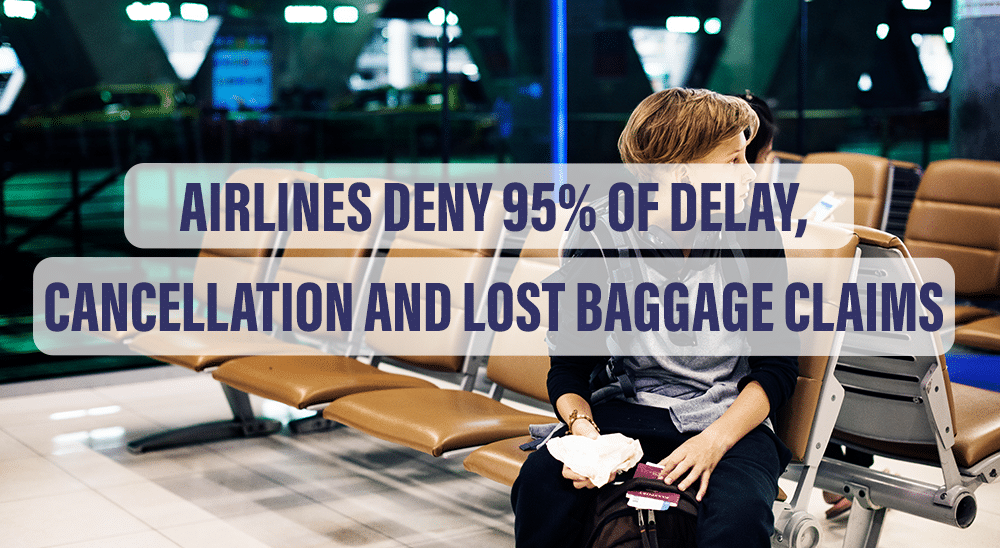From lexority.com, we have made public the conclusions on more than 10,000 claims received from airlines for delays, cancellations, overbookings, and baggage issues in 2018.
The published data reveals surprising information about success rates, compensation received, and the operating methods of airlines.
Firstly, we find statistics on passengers who claimed on their own, then the difference with the success of lexority.com.
12 points to highlight on flight claims:
Firstly, let’s talk about the probability of a passenger claiming on their own:
- The probability that a passenger tries to claim for a flight on their own and does not know how to do it, fails to contact the airline, or gives up due to bureaucracy is 54%.
- Among those who manage to contact the airline, 83% indicate spending more than 40 minutes filling out the form.
- Among those who succeed, 22% of passengers encounter an error when submitting, 34% encounter at least 2 errors, 13% up to 3 errors, and 31% more than 5 times.
- The probability that an affected passenger exceeds this stage and claims for an incident on their own and does not receive a response is 27%. This is known as administrative silence.
- If a response is received, which happens in 73% of cases, the probability of being compensated is 5%.
- The average response time of the airline to the customer claiming on their own to resolve and pay for an incident is 83 days.
- The average compensations obtained by customers when they make the claim themselves are 30% lower than those obtained by Reclamaciondevuelos.com. This is because many passengers are not aware of all their rights and get partial compensation if they do it themselves.
- It is worth noting that the probability of a passenger succeeding on their own to claim under the Montreal Convention for a delay, cancellation, or overbooking is only 3%. This regulation governs: All baggage incidents and cases of non-European airlines which, furthermore, do not depart from a European country.
- If a passenger claims for their luggage and succeeds on their own, which happens in 7% of cases, they will be compensated, on average, at 28% of the compensation they could obtain with a specialized lawyer.
- The most repeated response to reject a claim is to allege “extraordinary circumstances.” This occurs in 47% of cases. According to reclamaciondevuelos.com, 85% of cases in which the airline alleges “extraordinary circumstances” to not compensate the passenger end with a favorable judgment for the client.
- The second most repeated response to reject a claim is to allege “operational issues.” This occurs in 23% of cases. According to reclamaciondevuelos.com, 94% of cases in which the airline alleges “operational issues” to not compensate the passenger end with a favorable judgment for the client.
- The third most repeated response to reject a claim is to allege “adverse weather” that exempts the airline from any responsibility. This occurs in 19% of cases. 45% of cases in which the airline alleges “adverse weather” to not compensate the passenger end with a favorable judgment for the client.

9 data points on the success of the lexority.com platform
- www.lexority.com presents a success rate, either through extrajudicial or judicial means, of 98%. Claims presenting “genuine extraordinary circumstances” that were never likely to be claimed after case analysis are excluded. Among the remaining 2% of lost cases, the vast majority represent cases of denied boarding difficult to prove due to lack of evidence.
- Out of 100% of people claiming a flight through their services, 74% of individuals attempted to claim on their own with the airline or through another alternative route without success. The remaining 26% claimed directly through their platform, knowing the claiming service, either through recommendations or simply by searching on the internet and trusting the evaluations of other users.
- The average rating of affected individuals who trusted reclamaciondevuelos.com to handle their case is 9.6 out of 10. These evaluations cannot be modified and are recorded on Trust Pilot.
- The average compensation obtained per case is 30% higher than those obtained by individual passengers.
- The average time to send a case studied to the airline through extrajudicial means is 4 days.
- The average time to resolve a case through extrajudicial means is 100 days. This highlights the bureaucracy of the airline which takes 96 days to close the case.
- The average time to send a case studied and following the judicial route is 16 days.
- The average time to resolve through judicial means from receiving the claim is 153 days. It takes an average of 137 days to have a case closed with the court. The fastest court is Badajoz with an average of 97 days and the slowest is Ciudad Real with 302 days.
- The maximum number of claims received in a month is 3,423 passengers.

